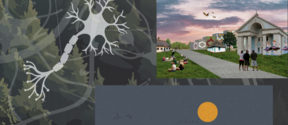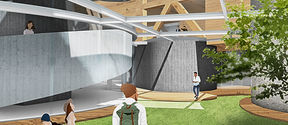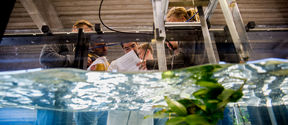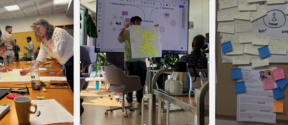Recommendations Towards Critical Trans-Disciplinarity
In spite of its identity as a distinctly and strategically multi-disciplinary university, Aalto University has lacked scientific research into the foundations and methods of inter- and transdisciplinary cooperation itself. This is not a lack of terminological or ontological analysis, but what has been missing and can benefit Aalto a lot, is deeper, critical and pragmatist analysis of inter- and especially trans-disciplinary strategies and methods themselves. We have done groundwork for radically creative methods in trans-disciplinary collaboration, based on a considerable amount of underused international literature, theoretical considerations, practical cases, and accumulated knowledge on the suitability of different inter- and trans-disciplinary approaches and methods for project purposes in particular. This work is based on both academic and business experiences.
The difficulties in interdisciplinary research in general – especially in broad inter-disciplinarity that connects very distant fields - boil down to philosophy of science. There needs to be an understanding of different epistemologies that different fields are built upon, before collaboration can really work. We have therefore looked at the dynamics and limits of collaboration, as well as at the fundamental connecting factors between disciplines and sectors. This requires moving to benefit trans-disciplinarity, which is something more radical (and perhaps paradigm changing) as it aims to integrate also non-scholarly forms of knowledge. The aim of this research is thus not solely to re-orientate Aalto’s interdisciplinary activities, based on our accomplished experiences, but to advance the field towards radical trans-disciplinarity with the help of pragmatic epistemological understanding.
One of the most important starting points for the advancement of Aalto’s interdisciplinary practices is that that professions in our university have a productive relationship with the world (Aristotle’s techne reinforced by practical-ethical consideration, phronesis). Critical pragmatism is the natural philosophical foundation of science here – developing inter-disciplinarity on the basis of unifying factors and with an ethical (i.e., critical) view to consequences of such interdisciplinary research (e.g., on sustainability and social justice).

We would like to propose the following recommendations for the basis of strategic tools and methods for radically creative trans-disciplinarity.
Learn with creativity
- Long-standing pathologies (recurring failures) require culturally transformative creativity.
- Re-conceptualise the role of scholar-practitioners as transformative intellectuals.
Combine critical pragmatism and utilitarianism
- Transdisciplinary approaches often ignore relevant knowledge, experience and methods from academic and professional practices and therefore can mean a return to outdated modes of collaboration.
- Trans-disciplinarity usually ignores the fact that a person can have several, varied and useful expertises, roles and experiences overlapping the barriers between academic, expert, professional and user realms.
- In order to create projective transformations, it is relevant to ask ”why?” and ”why not?”, and not only ”how”.
- The needs and desires of project participants cannot be left intact, but they should be changed during the process in order to have progress.
Collaborate imaginatively
- Recognize challenges and opportunities brought by professional cultures – sometimes people can look at the same thing but not see the same thing as their education and background define their perspective. Nevertheless, this can be turned into a strength when it is recognized. Understanding a phenomenon or issue in the light of unexpected and novel framework imported by collagues from a different discipline can potentially create radically new meanings.
- Open mindset, humble attitude, trust, and willingness to embrace creative friction, pluralism, and negotiation are needed.
Turn the organisation to become creative
- Creativity also takes place in organisations: their structures, job design, leadership, emotional intelligence, trust and open mind.
- Put emphasis on interdisciplinary and transdisciplinary expertise as a professional capability: recognize those who have managed to build bridges between disciplines and fields before
Tips for collaborative project work
- See the research in professional work and the creative production in academic work.
- Formulate alternative benefits than the satisfaction of immediate needs. Think beyond the brief and identify possible future challenges in the social, cultural, economic, and environmental contexts related to the project. Don't satisfy with present challenges.
- Work beyond a coherent community to prevent exclusion: take into account outsiders, newcomers and future participants.
- Rethink the brief.
- Disturb existing power relations by opening up a new space beyond hegemonic points and their negations. New concepts and emphasis can be sweaty – not as effortless as possible.
- Be afraid of the arbitrary demand for passion and enthusiasm in participatory culture – avoid empty participation.
- Aim to change the very notion of good artefacts, good products, good spaces, good services ...and good life.
Turn facilities into more than just shared spaces
- Try to work In situ with the project.
- Material practices support shared urgency, motivation, and sense of direction.
Future oriented, imagination-based, experimental, anticipatory, and transformative collaboration methods for new production tap into moments of opportunity with creative and trans-disciplinary initiatives, to make them path-breaking and societally transformative. Only then can transformative creativity be about experimentation and out-of-the-box thinking.
Espoo, the 2nd of October 2024
The Co-How team
Show other posts from this blog

Fostering Border Crossing Creativity
This text highlights essential mindsets in radical creative leadership and some core concepts for fostering border crossing creativity based on discussions, workshops, and interviews organised by the Co-How team.
Consequential Pragmatism
This blog text discusses methods which combine critical thinking with practicality in architectural design process.
The role of infrastructure in facilitating cross-disciplinarity
Hybrid concepts and metaphors across disciplines are created by working together in concrete material-spatial conditions.